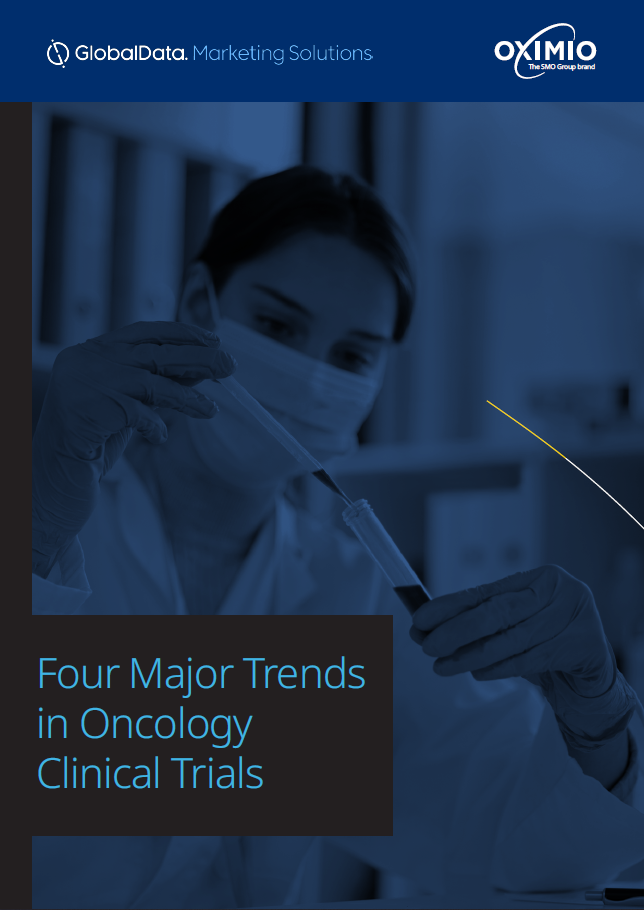Microbiome therapeutics are drugs that contain live strains of bacteria, which can be administered to modulate the patient’s microbiome in a therapeutically beneficial manner. According to GlobalData’s Pharma Intelligence Centre, 388 microbiome therapeutics are under development in the global private sector. Oncology presents as the third most abundant therapy area to be targeted by company-developed pipeline microbiome agents, with 65 agents. Infectious diseases present as the second most abundant therapy area with 74 agents, and gastrointestinal takes the lead with 106 agents.
Most of the oncology microbiome therapeutics pipeline is currently in the preclinical stages (38 agents), with only nine agents in clinical stages, and one agent in Phase III (Nubiyota’s MET-4). Within the clinical-stage oncology pipeline, agents are only being evaluated in solid tumours for which immune checkpoint inhibitors (ICIs) are approved. This is due to the putative mechanisms of action (MOAs) of microbiome therapeutics, working under the hypothesis that modulating the microbiome can enhance the ability of the endogenous immune system to attack cancer cells through promoting a pro-inflammatory and anti-tumour immune response. However, the exact MOAs for many agents have not been disclosed and the role of the microbiome in affecting response to immunotherapies is an area under intense investigation.

US Tariffs are shifting - will you react or anticipate?
Don’t let policy changes catch you off guard. Stay proactive with real-time data and expert analysis.
By GlobalDataAlmost all the agents in clinical trials have opted for a multi-indication trial design, most commonly involving melanoma/skin cancers, gastrointestinal tract cancers (including colorectal cancer), and non-small cell lung cancer, all indications where ICIs are first-line therapies for select patient populations. Additionally, 12 of the 13 ongoing trials are evaluating microbiome therapeutics as a combination therapy, and 11 of the 12 trials are in combination with approved ICIs. This highlights a clear strategic focus for microbiome therapeutics to enhance the efficacy of ICIs as an adjuvant therapy. If a robust clinical benefit is demonstrated, this could see microbiome therapies being used in combination with ICIs in first- or second-line settings, which could result in lucrative financial returns. However, a dearth of clinical trial data is available and so no solid conclusions can be drawn yet.
Nevertheless, some studies, including a randomised, placebo-controlled Phase III trial (NCT01410955), have shown clinical benefits for patients taking adjuvant microbiome therapies with chemotherapy. Diarrhoea is a dose-limiting toxicity for colorectal cancer patients to receive irinotecan. In the randomised controlled trial, 0% of patients given probiotics experienced Grade 3 or above diarrhoea (17.4% with a placebo), and probiotics significantly decreased the overall instances of diarrhoea (39.1% vs. 60.9%). This improvement may be clinically meaningful and could see a place for microbiome therapies in the clinic; however, it does not present as a clear and cogent strategy to gain FDA approval, and therefore improving the efficacy of ICIs is the preferred route to achieve market penetration.
Additionally, the reduction in chemotherapy toxicity may not be sufficient to warrant reimbursement of the microbiome therapeutic, and the use of novel endpoints such as instances of Grade 3 or above diarrhoea introduces much uncertainty around whether the FDA recognises these to be registration-enabling endpoints. Moreover, another advantage of targeting combination therapies with ICIs instead of chemotherapy is that it opens the door to larger deals and partnerships with big pharma, as many of the top ten big pharma companies have significant reliance on ICIs in their oncology portfolios and securing the clinical and commercial viability of ICIs is of high strategic interest.
Some challenges facing the development of novel microbiome therapeutics include the need for predictive biomarkers, which may be difficult considering the diversity of different strains and proposed MOAs. Moreover, competition with more established and cheaper options like a faecal matter transplant may impede the clinical uptake of microbiome therapeutics until superiority is demonstrated in a cost-effective manner. More large-scale, multicenter, Phase III, randomised controlled trials to evaluate ICI efficacy with or without adjuvant or concomitant microbiome therapies are needed to establish the clinical efficacy of this novel drug class.







